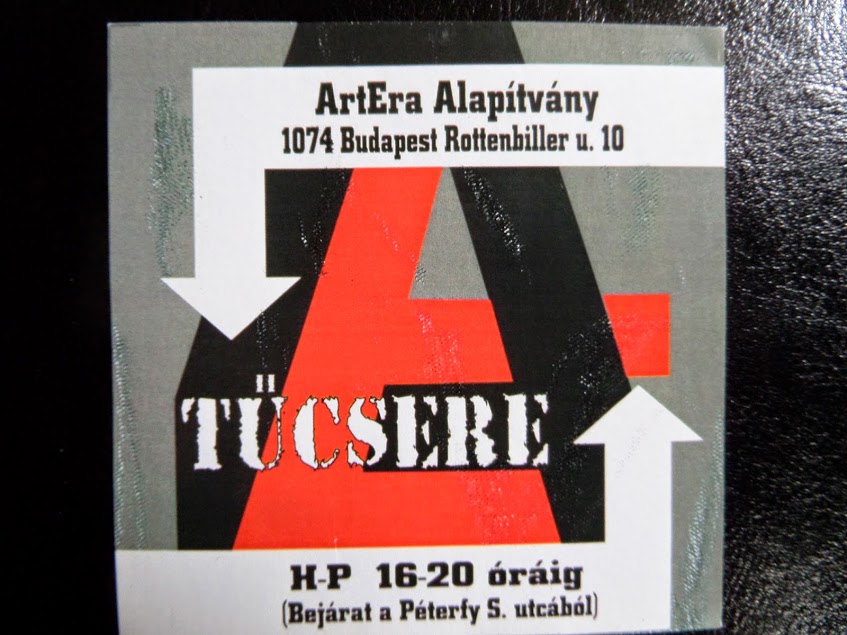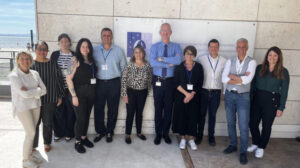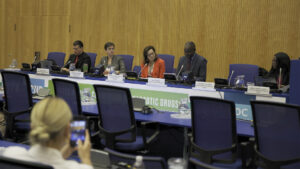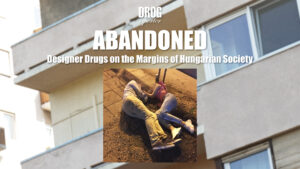The recent closure of the largest needle and syringe exchange program in Budapest raised a lot of concerns. Read how the leader of a similar service, ArtEra, sees the changing landscape for injecting drug users in the Hungarian capital.
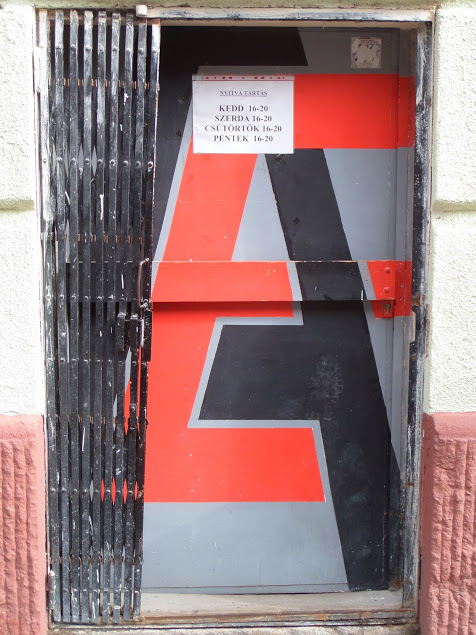 ArtEra is one of the few places in Budapest where drug users can feel safe and accepted. Located in the 7th district, it runs a syringe exchange program (SEP) providing sterile syringes to drug users in order to prevent the contraction and spread of HIV and Hepatitis C, and a drop-in centre where clients can surf the internet, do their laundry, have a cup of coffee, and even occasionally get tested. Without doubt it’s definitely a drug-user-friendly environment. Staff and volunteers of ArtEra also do occasional street outreach and syringe pick-ups in the area, in an effort to keep their community informed and safe. ArtEra tries to put an emphasis on rehabilitation and recovery; and with a strong relationship to a rehabilitation facility, they are able to immediately get clients who are ready to the treatment they need. They currently have 1,200 registered clients, mostly between the ages of 20 and 35 with mixed backgrounds, Most of the clients are users of “designer drugs” (also known as synthetic cathiones or “bath salts”), which are usually injected directly into the body. SEPs are generally known for providing services for heroin users; as of 2010, however, heroin virtually disappeared from the Hungarian black market, and since then drug users have been gravitating more towards synthetic cathiones, because they are easier to access, and significantly cheaper.
ArtEra is one of the few places in Budapest where drug users can feel safe and accepted. Located in the 7th district, it runs a syringe exchange program (SEP) providing sterile syringes to drug users in order to prevent the contraction and spread of HIV and Hepatitis C, and a drop-in centre where clients can surf the internet, do their laundry, have a cup of coffee, and even occasionally get tested. Without doubt it’s definitely a drug-user-friendly environment. Staff and volunteers of ArtEra also do occasional street outreach and syringe pick-ups in the area, in an effort to keep their community informed and safe. ArtEra tries to put an emphasis on rehabilitation and recovery; and with a strong relationship to a rehabilitation facility, they are able to immediately get clients who are ready to the treatment they need. They currently have 1,200 registered clients, mostly between the ages of 20 and 35 with mixed backgrounds, Most of the clients are users of “designer drugs” (also known as synthetic cathiones or “bath salts”), which are usually injected directly into the body. SEPs are generally known for providing services for heroin users; as of 2010, however, heroin virtually disappeared from the Hungarian black market, and since then drug users have been gravitating more towards synthetic cathiones, because they are easier to access, and significantly cheaper.
Even though local law enforcement and residents are generally sceptical about syringe exchange programs, ArtEra has managed to maintain a stable relationship with local law enforcement – not having had any problems with them so far – while receiving no complaints from local residents. Tamas Puy, director of ArtEra, believes the reason for this is partly because they are located in a cleaner and safer district, which means a smaller law enforcement presence. Furthermore, they made changes to their program, in order to ensure an ongoing healthy relationship with the district. By changing their opening hours, from 4pm–8pm to 10am-2pm, they have managed to avoid having any clients hanging around outside when parents pick up their kids from a kindergarten located in the area – which, according to Tamas, could have been a potential source of conflicts.
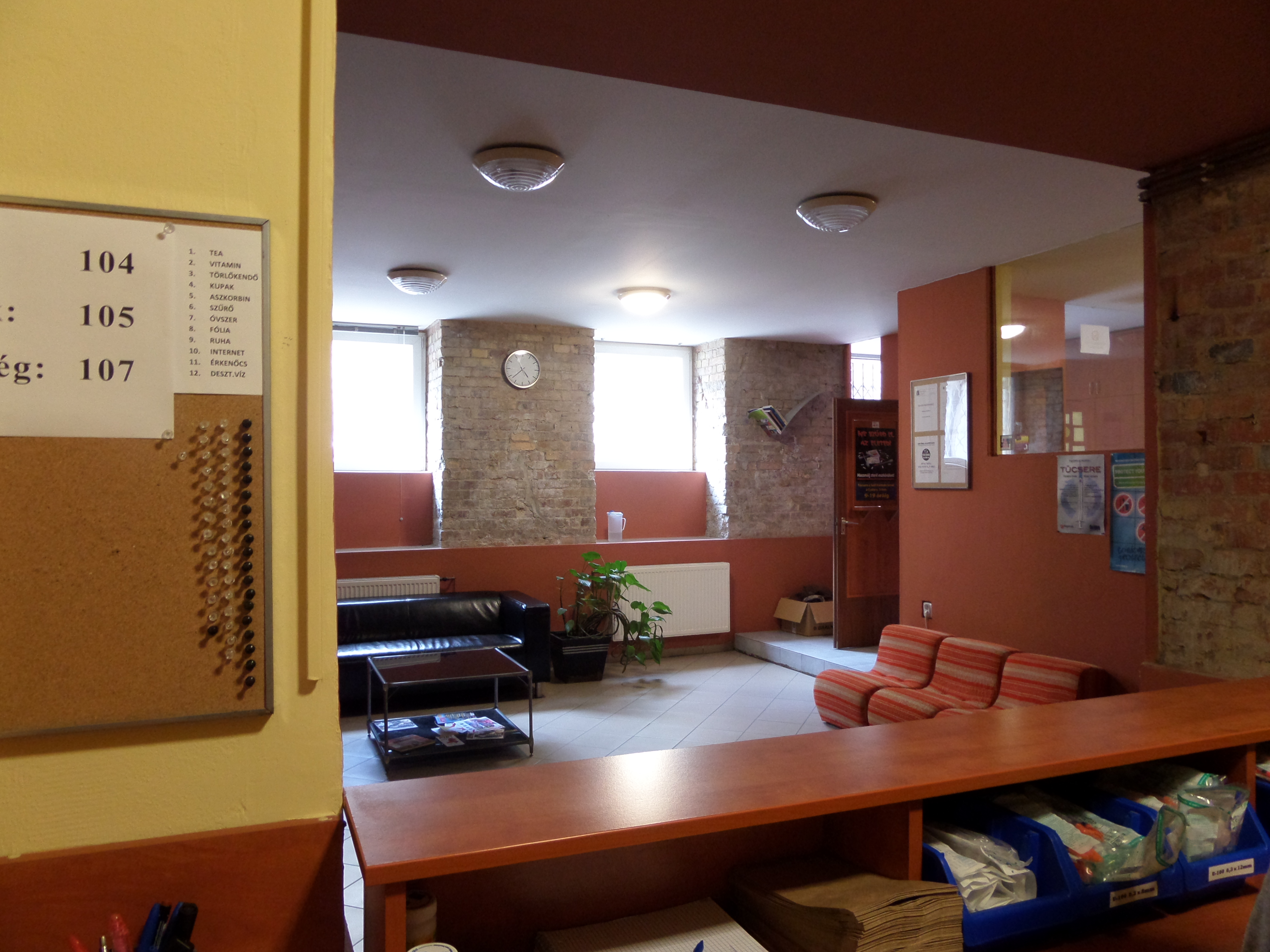 Unfortunately, not every SEP has had such a stable relationship with its district. At the beginning of this month, Budapest’s largest SEP, Kék Pont, located in the 8th district, was shut down due to lack of funding and support from the government. Before being shut down, they were servicing almost 3,000 drug users, and provided almost 40 percent of all the sterile syringes distributed in Hungary. So, now that Kék Pont has been shut down, what will happen to all their clients? The problem is that the remaining SEPs in Budapest are significantly smaller than Kék Pont was. There is now a concern, that all the other SEPs will be overburdened with the clients Kék Pont had to leave behind, and therefore unable to provide all the services they would like to. Indeed, according to Tamas, some former clients of Kek Pont have switched over to their syringe exchange, but up to now, there hasn’t been a large increase in their client numbers.
Unfortunately, not every SEP has had such a stable relationship with its district. At the beginning of this month, Budapest’s largest SEP, Kék Pont, located in the 8th district, was shut down due to lack of funding and support from the government. Before being shut down, they were servicing almost 3,000 drug users, and provided almost 40 percent of all the sterile syringes distributed in Hungary. So, now that Kék Pont has been shut down, what will happen to all their clients? The problem is that the remaining SEPs in Budapest are significantly smaller than Kék Pont was. There is now a concern, that all the other SEPs will be overburdened with the clients Kék Pont had to leave behind, and therefore unable to provide all the services they would like to. Indeed, according to Tamas, some former clients of Kek Pont have switched over to their syringe exchange, but up to now, there hasn’t been a large increase in their client numbers.
Nevertheless, they are now already unable to fully meet the demand for syringes in their area. Because of this growing client base, lack of resources, and in an effort to avoid non-drug-users obtaining syringes to make a profit on the street, ArtEra has had to cut down on the number of syringes clients are able to obtain per day: two syringes if you have no used syringes to return, and a maximum of five if you bring in your used syringes. That might sound like a lot, but with the new psychoactive substances, like synthetic cathiones, users are injecting more frequently than with opiates – up to 15 times a day. Clients therefore run the risk of not getting all the syringes they need each day to stay safe. To make matters worse, for the first time in two decades in Hungary, there have been occurrences of HIV cases linked to injecting drug use, which means that drug users who are not able to access all the sterile syringes they need are directly at risk of contracting HIV. In order to prevent an HIV epidemic in Hungary, and to ensure the safety of drug users, more support is needed for places like ArtEra.

The reality is, that no matter how much legislation or stigma exists, if a person wants to use drugs, they will most likely use them. If SEPs are unable to provide them with an adequate supply of sterile equipment and advice, those users risk contracting HIV or Hepatitis C, and also run a heightened risk of overdose. Furthermore, SEPs form a vital link between drug users and rehabilitation facilities, often making it a lot easier for drug users to get access to treatment than if they were to try to seek help on their own. SEPs can also provide emotional support, a safe space, and a non-judgmental environment, for a group of individuals who are generally socially marginalised. It is extremely important that places like ArtEra continue to function, and that they get the support and equipment needed to meet the demand for syringes.
Unfortunately, in view of what has happened to Kek Pont, and the fact that the government has imposed an extremely unrealistic goal of a drug-free Hungary by 2020, little support can be expected from the people who have the authority and ability to make a large, positive impact on the lives of drug users in their country. Hopefully, it will not take an HIV epidemic to make the government recognise the importance of syringe exchange programs such as ArtEra.
Sophia Reinicke
